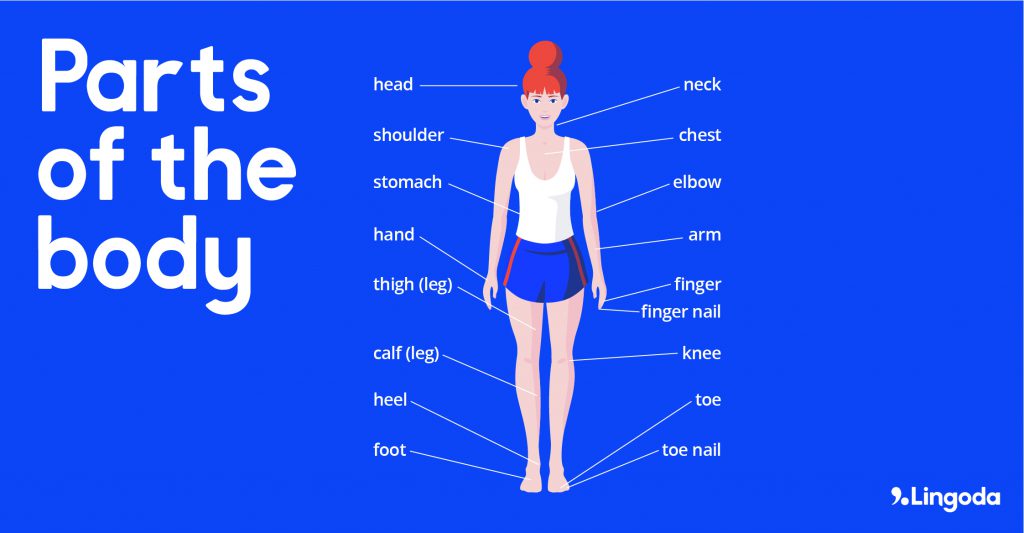Image Source
You can jump to any section of this article:
- Health, Illness and Disease Vocabulary
- Illness Expressions
- Common Illnesses and Diseases in English
- Medicine, Medical Equipments and Tools
- Medical Specialists List
- What to say at the doctor?
- Doctor’s Questions and Answers to Patient
- Patient Symptoms
- At the dentist’s
- At the chemist’s
Health, Illness and Disease Vocabulary
pain
feeling in your body when you have been hurt or when you are ill,sick
- Suddenly she felt a sharp pain in her neck, shoulder, waist, arm, leg, stomach.
- Take an aspirin to relieve the pain.
ache
continuous pain; feel a continuous pain
- I can’t sleep because my head aches too bad.
- I have a terrible headache, backache, stomach-ache.
ill
suffering from an illness or disease; not feeling well; sick
- My elder sister is seriously ill in St John’s hospital.
- The children started to feel ill an hour after the meal.
sick
physically or mentally ill; wanting to vomit
- I feel very sick, I don’t think I can work today.
- Be careful with the cake, too much of it can make you sick.
sore
painful (and often red) because of infection or because a muscle has been used too much
- I have a sore throat, I mustn’t take that cold drink.
- She says her stomach is still sore after the operation.
- His feet were sore after the bicycle trip.
illness
the state of being physically or mentally ill
- Our secretary missed a lot of work through illness last month.
- Flu can be a serious illness if you aren’t careful enough.
disease
serious illness, often caused by infection
- Peter’s uncle suffers from a rare blood disease.
- A fatty diet increases the risk of heart disease.
- The government is planning further health measures to prevent the spread of disease.
heal
become healthy again; make something, somebody healthy again, make somebody feel happy again
- As I see it will take a long time for your wounds to heal.
- This ointment will help to heal your scratches.
- The tea you made really healed me.
cure
make somebody or something healthy again after an illness; make an illness go away
- He was seriously ill for a long time, but the doctor cured him at last.
- Scarlet fever is a serious illness, but it can be cured fairly fast.
cure
medicine or medical treatment that cures an illness; the act of curing or the process of being cured
- There is no known cure for this illness but the it can be treated.
- I’m afraid you must be taken to hospital for the cure.
treat
give medical care or attention to somebody or something; deal with something or somebody
- I was treated for flu, but later I was diagnosed with pneumonia.
- This illness is usually treated with antibiotics and a strict diet..
treatment
(the way or process of) curing an illness or injury or making somebody look and feel good; the way of dealing with something or somebody
- Doctors apply various treatments for this illness.
- My sister goes to a wellness centre to receive beauty treatments.
diagnose
define what an illness or the cause of a problem is
- The blood test is used to diagnose all kinds of diseases.
- She was diagnosed (as) (a) diabetic in her early childhood.
diagnosis
medical description of an illness or condition
- The doctors didn’t share every detail of the diagnosis with the patient’s family.
- We had to wait a lot for the exact diagnosis after the examination.
injury
harm done to the body, for example in an accident
- They were lucky to escape the fight without serious injuries.
- There were only minor injuries in the crash.
Recommended for you:
What Happens if You Don’t Drink Enough Water Daily? [Video]
8 Creepy Idioms Related to Body Parts [Infographic]
injure
harm somebody or yourself physically, especially in an accident, receive/suffer an injury
- He injured his finger when he was cutting the meat.
- Nobody was killed in the accident, but two people were seriously injured.
wound
an injury to part of the body, especially one in which a hole is made in the skin
- He died from the wounds that he had received in the crash.
- He was taken to hospital although his wounds didn’t seem too serious.
cut
a wound caused by something sharp
- He had such a deep cut on his arm that he was taken to hospital.
- The victim had several cuts on his chest, still he survived.
bruise
a blue, brown or purple mark on the skin after somebody has fallen
- He was covered in bruises at the end of the football match.
- The man came to the surgery with a huge bruise over his eye.
scratch
rub your skin with your nails, usually because it’s itching; a mark or a small cut or injury made by scratching
- The cat continuously scratched itself behind the ear.
- She had a long scratch on her arm when she came out of the rose garden.
infection
illness caused by bacteria or a virus; the act or process of causing or getting a disease
- Wash your hands carefully to decrease the risk of infection.
- She almost died from blood infection.
inflammation
a condition when a part of the body becomes red, sore and swollen because of infection or injury
- My knee was twice the size of the other one due to the inflammation.
- You had better not eat fatty food so soon after your stomach inflammation.
symptom
a change in your body or mind that shows that you are not healthy
- You don’t necessarily need a doctor with symptoms like a headache or sore throat.
- Depression can cause physical symptoms, too.
temperature
the measurement of how hot your body is
- have a temperature – when your temperature is higher than normal due to illness
- I feel so weak, I think I have a temperature.
- She had such a high temperature that she was immediately taken to hospital.
fever
a medical condition in which someone has a temperature that is higher than normal; a particular type of disease with high temperature
- Did you take aspirin to reduce the fever?
- Our daughter has been diagnosed with scarlet fever.
cold
illness affecting the nose and/or throat, making you cough and/or sneeze
- I think I caught a cold on the ice rink yesterday.
- She can’t come to school, she’s in bed with a cold.
flu
a very bad cold, an infectious disease with fever, pains and weakness
- Please don’t visit us this week, the whole family has the flu.
- If you’re not careful enough and you don’t take antibiotics, you may even die from the flu.
vomit
discharge stomach contents through the mouth
- There must have been something wrong with the food as both children vomited shortly after the meal.
- I’m afraid I’m pregnant; I vomit after getting up every morning.
medicine
a substance that you drink or swallow so as to cure an illness
- You look so pale. Haven’t you taken your medicine this morning?
- The doctor prescribed three kinds of medicine for me.
antibiotics
medicine that kills bacteria and cures infections
- My mum’s throat infection went away after she started the antibiotics.
- Hot tea won’t be enough to cure your flu, I think you also need antibiotics.
pain killer
kind of medicine that takes away some or all of the discomfort of an illness or injury
- I had such a horrible headache last night that I took two pain killers.
- She says she doesn’t think it’s a good idea to take pain killers too often.
blood pressure
the rate at which blood flows through the body
- Drink some coffee if you feel your blood pressure is too low.
- High blood pressure increases the risk of having a heart attack.
pulse
the regular beat of blood as it is sent around the body
- The doctor started the examination with taking my pulse and blood pressure.
- He has such a weak pulse that it’s hard to feel.
x-ray
a photograph of a somebody’s bones and organs
- They took x-rays of my knee to make sure it wasn’t broken.
- The doctor says that the x-ray has proved his suspicion of cancer, but I don’t believe him.
patient
a person staying in a hospital or medical facility
- The doctor examined the patient very carefully but he didn’t find any disorder.
- There were so many patients in the doctor’s surgery that I didn’t wait and I went home.
surgery
a place where a doctor or dentist sees patients; medical treatment of injuries or diseases involving cutting open somebody’s body
- I wanted to see a doctor but the surgery was closed.
- I hope they can cure me with medicine and I don’t need undergo surgery.
operation
cutting open a part of somebody’s body in order to remove or cure a part
- The operation was successful but the patient died.
- The doctor says I can hardly escape an operation.
operate on somebody (for something)
cut open a part of somebody’s body in order to remove or cure a part
- He soon recovered after he was operated on for appendicitis.
- The doctor ordered to take my brother to hospital and they will operate on him tomorrow.
operating theatre
a room in a hospital used for medical operations
- The patient died on the way to the operating theatre.
- She felt nervous as she looked round the operating theatre.
chemist’s (shop)
a shop where medicine is sold
- The doctor suggested to go to the chemist’s for the medicine straight from the surgery.
- This syrup is also sold in the supermarket, so you don’t need to go to the chemist’s.
prescription
an official piece of paper filled out by a doctor with which you can get medicine from a chemist’s shop
- Unfortunately, the doctor forgot to sign the prescription and so the chemist refused to give me the medicine.
- Keep this prescription even though you don’t need the medicine now; you may need it later.
Recommended for you:
Human Body Parts in English!
Other ways to say ON THE OTHER HAND!
Illness expressions
- feel ill, sick
- have a temperature
- have a pain in your back, chest, waist, arm, shoulder
- have a headache
- feel weak
- feel dizzy
- suffer from stomach cramps
- have a black eye
- have a swollen, sprained ankle, wrist, foot
- have a lump
- have a broken leg
- have a fracture
- burn, cut a finger
- sprain an ankle
- be allergic to antibiotics
- produce an allergic reaction
- come down with a cold
- be in bed with a cold
- have a heart attack, stroke
- suffer from asthma, malnutrition, diabetes
- fight cancer, depression, addiction, alcoholism
- (go to) see a doctor
- examine a patient
- take, feel your pulse
- take, measure your temperature
- diagnose an illness, disease
- diagnose a condition, disorder
- prescribe medicine
- make up a prescription
- take someone to hospital
- undergo an examination, operation
- dress a wound
- a bandaged arm, leg
- put on a plaster
- give an injection
- have a blood test
- prevent the spread of disease
- enhance, build immunity to a disease
Recommended for you:
50 Popular English Idioms to Sound Like a Native Speaker
Phone Conversation: Most Commonly Used English Phrases
Common Illnesses and Diseases in English
- flu
- cold
- diarrhoea
- pneumonia
- mumps
- measles
- chickenpox
- scarlet fever
- tonsillitis
- bronchitis
- indigestion
- ulcer
- appendicitis
- hepatitis
- heart attack
- heart disease
- stroke
- arthritis
- asthma
- lung cancer
- diabetes
- amnesia
- nervous breakdown
Recommended for you:
SHOPPING Phrases, Dialogs and Phrasal Verbs!
Top 9 Phrasal Verbs with MAKE and Their Simple Meanings
Medicine, Medical Equipments and Tools
-
- pill
- tablet
- capsule
- syrup
- ointment
- cream
- eye drops
- injection
- tranquilizer
- pain-killer
- antiseptic
- antifebrile
- dressing
- bandage
- cast
- brace
- gauze
- plaster
- elastic tape
- thermometer
- stethoscope
- syringe, forceps, scissors, oxygen mask, test tube, vial, IV bag, blood pressure monitor, crutches, wheelchair
Recommended for you:
English Vocabulary for IELTS Speaking Test
English For Information Technology Professionals
Medical Specialists List
Nurse: doctor’s assistant
Allergist: treats food and environmental allergies
Anaesthesiologist: provides pain prevention during surgery
Cardiologist: heart specialist
Dentist: tooth specialist
Dermatologist: skin specialist
Gynecologist: specializes in women’s needs
Midwife: helps women deliver babies
Neurologist: brain specialist
Oncologist: tumour specialist
Ophthalmologist: deals with eye diseases
Pediatrician: treats babies and children
Physical therapist: specializes in the body’s movement
Psychiatrist: mental health specialist
Radiologist: specializes in imaging tests (x-ray, etc.)
Recommended for you:
Spa Fitness Gym Workout Massage Vocabulary and Dialogs
18 Powerful Websites to Improve Your Writing Skills in English
What to say at the doctor?
Going to Doctor
- I think you should see a doctor.
- You look very pale. Shall I call the ambulance?
- I’m ill. I don’t feel well. I need a doctor. I must see a doctor.
- Doctor Bulb’s surgery hours are from 9 to 12 every morning.
- Where do I find the GP’s office? (general practitioner – a doctor who is trained in general medicine working in the local community)
- What are the consulting hours of the ENT (ear, nose and throat) specialist?
- Do I have to make an appointment?
Doctor’s Questions and Answers to Patient
- What’s the matter? Where’s the pain? What do you complain of?
- Have you taken your temperature?
- For how long have you been feeling ill?
- Take your clothes off. I’ll examine you. Let me take your pulse, please.
- I’ll measure your blood pressure.
- Your blood pressure is rather high. Your blood pressure is too low.
- Let me sound your back. Take a deep breath. I’ll check your lungs.
- Can I have a look? Where does it hurt?
- Does it hurt here? Breath out slowly.
- Show me your tongue. Poke out your tongue.
- Have you got any other symptoms?
- What infectious diseases have you had?
- What have you eaten/drunk?
- Have you been injured?
- Don’t worry. There’s no serious problem.
- I don’t think it’s too serious.
- You’ve got to be vaccinated against tetanus.
- You must stay in bed and take this medicine three times a day, after meals.
- I’ll dress the wound and put a plaster on your arm.
- You must follow a diet, you need to rest and you shouldn’t worry.
- Your test results have come in. The blood test came back negative.
- The biopsy shows a tumour.
- You should consult a specialist.
- We’ll know more in a few days.
- It would be better if you went to hospital.
- I think you’ll have to stay in hospital for a week.
- Hopefully, there won’t be any complications.
- I don’t think you need chemotherapy.
- I’ll give you a prescription. Take this medicine three times a day / after meals / an hour before lunch.
- You’ll soon be well again.
- Come back next week if you don’t feel better.
Recommended for you:
Making Complaints in English: in a restaurant, on the phone, by letter
Best English Grammar and Spelling Checkers Online
Patient Symptoms
- I’ve got a high temperature.
- I feel really rough. I’m shattered/exhausted.
- Could you check my blood pressure? I’ve got high blood pressure.
- There’s a sharp pain here. I’ve got a pain in my limbs.
- I feel dizzy. I’ve got a kidney problem. I’ve lost weight.
- I always feel bad after meals. I’ve got a stomach ache.
- I’ve got a splitting headache. I often have nosebleeds.
- I have diarrhoea. I’ve lost my appetite.
- I’ve got circulation problems. I sweat all night.
- My ears are buzzing. I’ve got an upset stomach.
- I’ve sprained my wrist/ankle. My hand/foot is badly swollen.
- I think I’ve pulled a muscle in my leg/arm.
- I’ve had scarlet fever, mumps, the measles.
- Is it something serious? Is this a common problem at my age?
- When will the tests results come in? Are you going to run more tests?
- Do I have to be operated on? Will I need surgery?
- How long do I have to stay in hospital?
- I hope there won’t be any complications.
- Could you prescribe some medicine for me?
- How often should I take this medicine?
- Shall I come back next week if I don’t get better?
At the dentist’s
- I’ve got a pain in my back teeth and my gum is bleeding.
- I’ve lost a filling. My denture’s broken.
- Does the tooth have to be extracted or can you replace the filling?
At the chemist’s
- Would you make up this prescription for me?
- Shake well before use. Not to be taken orally.
- Can I get a packet of vitamin tablets?
Wordlist: At the doctor
- Vocabulary List: Learn New Vocabulary
- Vocabulary Training: Practice and Memorize Vocabulary
- Games and Quiz: Have Fun With Vocabulary
|
|
|
|---|---|
|
treatment |
medical care for an illness or injury |
|
treat |
to apply medical care to someone |
|
check-up |
when a doctor checks a person’s condition thoroughly |
|
surgery |
a doctor’s consulting room |
|
waiting room |
a room in a surgery for people to wait for their doctor to see them |
|
surgery hour |
the time in which the surgery is open for people to come and see the doctor |
|
patient |
a person who receives treatment from a doctor or other medically educated person |
|
feel |
to become aware of something through the skin; to experience an emotion |
|
well |
in good health |
|
be well |
|
|
be not well |
|
|
feel good |
|
|
bad |
not good; not in good health |
-
-
treatment, treatments(noun)
-
- medical care for an illness or injury
-
- A treatment or cure is applied after a medical problem has already started.
-
-
-
- to apply medical care to someone
-
- They treated me for malaria.
-
-
check-up, check-ups(noun)
-
- when a doctor checks a person’s condition thoroughly
-
- The check-up showed that everything was alright.
-
-
-
surgery, surgeries[ˈsɜːdʒəri](noun)
-
- a doctor’s consulting room
-
- I dropped in at the surgery as I was passing to pick up my prescription.
-
-
-
waiting room, waiting rooms(noun)
-
- a room in a surgery for people to wait for their doctor to see them
-
- Around ten people were sitting in the waiting room.
-
-
-
surgery hour, surgery hours(noun)
-
- the time in which the surgery is open for people to come and see the doctor
-
- Surgery hours are every weekday from 8 till 12.
-
-
-
- a person who receives treatment from a doctor or other medically educated person
-
- The doctor has many regular patients.
-
-
feel, felt, felt[fiːl](irregular verb)
-
- to become aware of something through the skin; to experience an emotion
-
- You can feel a heartbeat if you put your fingers on your breast.
-
-
-
- in good health
-
- I had been sick, but now I’m well.
-
-
- After some months of sickness I’m finally well again.
-
-
- I had to throw up yesterday and I’m still not well today.
-
-
- I feel so good after a hot bubblebath.
-
-
- not good; not in good health
-
- I feel so bad because I forgot our date.
Enter the correct word in the text box and then confirm your entry. If you make a mistake, the word will be repeated automatically! Learn with pictures and examples by customizing the vocabulary trainer to fit your needs.
Complete the word by entering the missing letters!
Click on the two cards that belong together!
Word and Image
Word and Definition
Definition and Image
|
|
|
|---|---|
|
hurt |
to cause physical pain and/or injury; to cause (somebody) emotional pain |
|
toothache |
a pain or ache in a tooth |
|
headache |
a pain in the head |
|
backache |
any pain in the back |
|
earache |
a pain in the middle or inner ear |
|
stomachache |
a pain in the abdomen, often caused by indigestion, usually being lower than the stomach and related to the intestines |
|
examine |
to check the health or condition of someone |
|
take off |
to remove one’s clothing |
|
turn around |
to physically rotate horizontally 180 or 360 degrees |
|
lie |
to be in a horizontal position |
|
lie down |
to assume a horizontal position |
|
stand up |
to rise from a lying or sitting position |
-
-
hurt, hurt, hurt[hɜːt](irregular verb)
-
- to cause physical pain and/or injury; to cause (somebody) emotional pain
-
- Does your leg still hurt?
-
-
-
toothache, toothaches[ˈtuθˌe(ɪ)k](noun)
-
- a pain or ache in a tooth
-
- He went to the dentist because he had a really bad toothache.
-
-
-
headache, headaches[ˈhɛde(ɪ)k](noun)
-
- a pain in the head
-
- The noise caused a bad headache.
-
-
-
backache, backaches[ˈbæke(ɪ)k](noun)
-
- any pain in the back
-
- The old man could barely walk because of his backache.
-
-
-
earache, earaches[ˈijɹe(i)k](noun)
-
- a pain in the middle or inner ear
-
- The little girl is suffering from earache.
-
-
-
stomachache, stomachaches[ˈstʌməke(ɪ)k](noun)
-
- a pain in the abdomen, often caused by indigestion, usually being lower than the stomach and related to the intestines
-
- She’s complaining about a bad stomachache.
-
-
-
- to check the health or condition of someone
-
- The doctor examined the patient.
-
-
- to remove one’s clothing
-
- He took off his shoes.
-
-
turn around(phrasal verb)
-
- to physically rotate horizontally 180 or 360 degrees
-
- Turn around so I can see the back of your new dress.
-
-
-
lie, lay, laid[laɪ̯](irregular verb)
-
- to be in a horizontal position
-
- The patients usually lie on the divan bed during the check-up.
-
-
-
- to assume a horizontal position
-
- Lie down on the bed until you feel better.
-
-
stand up, stood up, stood up(phrasal verb)
-
- to rise from a lying or sitting position
-
- Stand up, then sit down again.
-
Enter the correct word in the text box and then confirm your entry. If you make a mistake, the word will be repeated automatically! Learn with pictures and examples by customizing the vocabulary trainer to fit your needs.
Complete the word by entering the missing letters!
Click on the two cards that belong together!
Word and Image
Word and Definition
Definition and Image
|
|
|
|---|---|
|
tender |
sensitive or painful to touch |
|
tender spot |
|
|
test |
a session in which something is examined under a certain condition |
|
blood test |
a serologic analysis of a sample of blood |
|
injection |
something pushed or pumped intravenously or intramuscularly by use of a syringe and a needle into someone’s body |
|
vaccination |
the administration of antigenic material (a vaccine) to produce immunity to a disease |
|
prescription |
a written order, as by a physician, for the administration of a medicine or other intervention |
|
prescribe |
to order a drug or medical device for use by a particular patient |
|
chemist’s |
a place where prescription drugs are dispensed |
|
chemist |
a person who works at a place where prescription drugs are dispensed |
|
pill |
a small portion of a drug or drugs to be taken orally, usually of roughly cylindrical shape, often coated to prolong dissolution or ease swallowing |
|
drug |
a substance used to treat an illness, relieve a symptom, or modify a chemical process in the body for a specific purpose; a substance, often addictive, which affects the central nervous system |
|
poison |
a substance that is very harmful or lethal to a living organism |
|
poisonous |
containing sufficient poison to be dangerous |
-
-
tender[ˈtɛn.də(ɹ)](adjective)
-
- sensitive or painful to touch
-
- Be careful, that area is tender.
-
-
-
- Due to a rash I’ve got some tender spots on my arms.
-
-
- a session in which something is examined under a certain condition
-
- The woman received the results of her HIV test.
-
-
blood test, blood tests(noun)
-
- a serologic analysis of a sample of blood
-
- The treatment requires a preliminary blood test.
-
-
-
injection, injections[ɪnˈʤɛktʃən](noun)
-
- something pushed or pumped intravenously or intramuscularly by use of a syringe and a needle into someone’s body
-
- She’s really afraid of injections.
-
-
-
vaccination[ˌvæk.sɪˈneɪ.ʃən](uncountable noun)
-
- the administration of antigenic material (a vaccine) to produce immunity to a disease
-
- Vaccination is generally considered to be the most effective and cost-effective method of preventing infectious diseases.
-
-
-
prescription, prescriptions(noun)
-
- a written order, as by a physician, for the administration of a medicine or other intervention
-
- The surgeon wrote a prescription for a pain killer and physical therapy.
-
-
-
prescribe[pɹəˈskɹaɪb](verb)
-
- to order a drug or medical device for use by a particular patient
-
- The doctor prescribed John a set of pills.
-
-
-
chemist’s, chemists’(noun)
-
- a place where prescription drugs are dispensed
-
- Sue needs to go to the chemist’s to get her medicine.
-
-
-
chemist, chemists[ˈkɛmɪst](noun)
-
- a person who works at a place where prescription drugs are dispensed
-
- The chemist couldn’t find the medicine the man was asking for.
-
-
-
- a small portion of a drug or drugs to be taken orally, usually of roughly cylindrical shape, often coated to prolong dissolution or ease swallowing
-
- Take two pills every hour.
-
-
- a substance used to treat an illness, relieve a symptom, or modify a chemical process in the body for a specific purpose; a substance, often addictive, which affects the central nervous system
-
- Aspirin is a drug that reduces pain, acts against inflammation and lowers body temperature.
-
-
poison, poisons[ˈpɔɪz(ə)n](noun)
-
- a substance that is very harmful or lethal to a living organism
-
- We used a poison to kill the weeds.
-
-
-
- containing sufficient poison to be dangerous
-
- Certain mushrooms are not edible because they are poisonous.
Enter the correct word in the text box and then confirm your entry. If you make a mistake, the word will be repeated automatically! Learn with pictures and examples by customizing the vocabulary trainer to fit your needs.
Complete the word by entering the missing letters!
Click on the two cards that belong together!
Word and Image
Word and Definition
Definition and Image
|
|
|
|---|---|
|
dentist |
a medical doctor who specialises in treating teeth |
|
dentist’s assistant |
a medical assistant who works at a dentist’s office |
|
open |
to make something accessible |
|
open one’s mouth |
|
|
drill |
to create a hole in teeth by removing material with a special tool |
|
fill |
to treat a tooth by adding a dental filling to it |
-
-
- a medical doctor who specialises in treating teeth
-
- Because of a toothache he urgently needs to go to the dentist.
-
-
dentist’s assistant, dentist’s assistants(noun)
-
- a medical assistant who works at a dentist’s office
-
- Four female dentist’s assistants work at this dentist.
-
-
-
- to make something accessible
-
- Turn the doorknob to open the door.
-
-
- Please open your mouth so I can check your teeth.
-
-
- to create a hole in teeth by removing material with a special tool
-
- The dentist unfortunately had to drill because of too many caries.
-
-
- to treat a tooth by adding a dental filling to it
-
- I’m sorry but the hole in your tooth needs to be filled.
Enter the correct word in the text box and then confirm your entry. If you make a mistake, the word will be repeated automatically! Learn with pictures and examples by customizing the vocabulary trainer to fit your needs.
Complete the word by entering the missing letters!
Click on the two cards that belong together!
Word and Image
Word and Definition
Definition and Image
Learn more …
At the
Doctor’s office
Sarah: Hello Doctor, I need your Help!
Doctor: Hello
Sarah, What seems to be the problem?
Sarah: Well, I
have a bad cough and sore throat. I also have a backache.
Doctor: How long
have you had these symptoms?
Sarah: About two
days now.
Doctor: Have you taken your temperature?
Sarah: I’ve got a
high temperature.
Doctor: Have you got any other symptoms?
Sarah: No.
Doctor: Hmm. It sounds like you’ve got the flu. Take
aspirin every four hours and get plenty of rest. Make sure you drink lots of
fluids. Call me if you’re still sick next week.
Sarah: I’ll do, thanks.
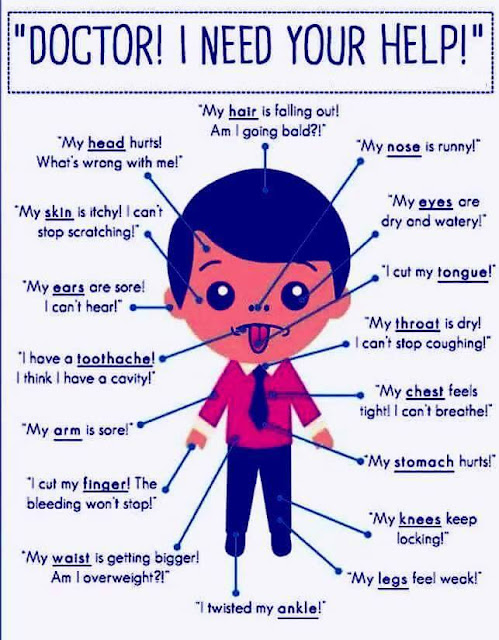 |
| common illnesses |
The most important words you will ever need at the doctor’s office:
Doctor:
-I think you should see a doctor.
-You look very
pale. Shall I call the ambulance?
-I’m ill. I
don’t feel well. I need a doctor. I must see a doctor.
-Doctor Bulb’s
surgery hours are from 9 to 12 every morning.
-Do I have to
make an appointment?
-What’s the matter? Where’s the pain? What
do you complain of?
— Have you
taken your temperature?
-Let me sound
your back. Take a deep breath. I’ll check your lungs.
-Can I have a
look? Where does it hurt?
-Does it hurt
here? Breath out slowly.
-Show me your
tongue. Poke out your tongue.
– Have you got
any other symptoms?
– What
infectious diseases have you had?
– What have you
eaten/drunk?
– Have you been
injured?
– Don’t worry.
There’s no serious problem.
_For
how long have you been feeling ill?
– Take your
clothes off. I’ll examine you. Let me take your pulse, please.
– I’ll measure
your blood pressure.
– You’ve got to
be vaccinated against tetanus.
– You must stay
in bed and take this medicine three times a day, after meals.– You must follow
a diet, you need to rest and you shouldn’t worry..
– You should
consult a specialist.
– We’ll know
more in a few days.
– It would be
better if you went to hospital.
– I think
you’ll have to stay in hospital for a week.
– Hopefully
there won’t be any complications.
– I’ll give you
a prescription. Take this medicine three times a day / after meals / an hour
before lunch.
– You’ll soon
be well again.
– Come back
next week if you don’t feel better.
Patient
– I’ve got a high temperature.
– I feel really
rough. I’m shattered /exhausted.
– Could you
check my blood pressure? I’ve got high blood pressure.
– There’s a
sharp pain here. I’ve got a pain in my limbs.
– I feel dizzy.
I’ve got a kidney problem. I’ve lost weight.
– I always feel
bad after meals. I’ve got a stomach ache.
– I’ve got a
splitting headache. I often have nosebleeds..
– I’ve got
circulation problems. I sweat all night.
– My ears are
buzzing. I’ve got an upset stomach.
– I’ve sprained
my wrist/ankle. My hand/foot is badly swollen.
– I think I’ve
pulled a muscle in my leg/arm.
– I’ve had
scarlet fever / mumps / the measles.
– Is it
something serious? Is this a common problem at my age?
– When will the
tests results come in? Are you going to run more tests?
– Do I have to
be operated on? Will I need surgery?
– How long do I
have to stay in hospital?
– I hope there
won’t be any complications.
– Could you
prescribe some medicine for me?
– How often
should I take this medicine?
– Shall I come
back next week if I don’t get better?
At the chemist’s
– Would you make up this prescription for
me?
– Shake well
before use. Not to be taken orally.
– Can I get a
packet of vitamin tablets?
Ache
continuous pain; feel a continuous pain
I have a terrible headache / backache / stomach-ache.
Antibiotics
medicine that kills bacteria and cures infections
Bruise
a blue, brown or purple mark on the skin after somebody has fallen
Cold:
illness affecting the nose and/or throat, making you cough and/or sneeze
Cure:
make somebody or something healthy again after an illness; make an illness go
away
Cure
medicine or medical treatment that cures an illness; the act of curing or the
process of being cured
Cut
a wound caused by something sharp
Chemist’s (shop)
a shop where medicine is sold
Disease
serious illness, often caused by infection
Diagnose
define what an illness or the cause of a problem is
Diagnosis
medical description of an illness or condition
Fever
a medical condition in which someone has a temperature that is higher than
normal; a particular type of disease with high temperature
Flu:
a very bad cold, an infectious disease with fever, pains and weakness.
Heal
become healthy again; make something/somebody healthy again, make somebody feel
happy again
– This ointment will help to heal your scratches.
Ill
suffering from an illness or disease; not feeling well; sick
Illness
the state of being physically or mentally ill
Injury
harm done to the body, for example in an accident
Injure
harm somebody or yourself physically, especially in an accident, receive/suffer
an injury
Infection
illness caused by bacteria or a virus; the act or process of causing or getting
a disease
Inflammation
a condition when a part of the body becomes red, sore and swollen because of
infection or injury
Pain
feeling in your body when you have been hurt or when you are ill/sick
Sick
physically or mentally ill; wanting to vomit
Sore
painful (and often red) because of infection or because a muscle has been used
too much
Treat
give medical care or attention to somebody or something; deal with something or
somebody
Treatment
(the way or process of) curing an illness or injury or making somebody look and
feel good; the way of dealing with something or somebody
Wound
an injury to part of the body, especially one in which a hole is made in the
skin
Scratch:
Rub your skin with your nails, usually because it’s itching; a mark or a small
cut or injury made by scratching
Symptom
a change in your body or mind that shows that you are not healthy
Temperature:
the measurement of how hot your body is.
Vomit
discharge stomach contents through the mouth
Medicine
a substance that you drink or swallow so as to cure an illness
Pain killer:
kind of medicine that takes away some or all of the discomfort of an illness or
injury.
Patient
a person staying in a hospital or medical facility
Surgery:
A place where a doctor or dentist sees patients; medical treatment of injuries
or diseases involving cutting open somebody’s body.
Operation
cutting open a part of somebody’s body in order to remove or cure a part.
Operate on somebody (for something)
cut open a part of somebody’s body in order to remove or cure a part.
Operating theatre
a room in a hospital used for medical operations
Prescription
an official piece of paper filled out by a doctor with which you can get
medicine from a chemist’s shop
 Health, Illness and Disease Vocabulary
Health, Illness and Disease Vocabulary
pain
feeling in your body when you have been hurt or when you are ill,sick
- Suddenly she felt a sharp pain in her neck, shoulder, waist, arm, leg, stomach.
- Take an aspirin to relieve the pain.
ache
continuous pain; feel a continuous pain
- I can’t sleep because my head aches too bad.
- I have a terrible headache, backache, stomach-ache.
ill
suffering from an illness or disease; not feeling well; sick
- My elder sister is seriously ill in St John’s hospital.
- The children started to feel ill an hour after the meal.
sick
physically or mentally ill; wanting to vomit
- I feel very sick, I don’t think I can work today.
- Be careful with the cake, too much of it can make you sick.
sore
painful (and often red) because of infection or because a muscle has been used too much
- I have a sore throat, I mustn’t take that cold drink.
- She says her stomach is still sore after the operation.
- His feet were sore after the bicycle trip.
illness
the state of being physically or mentally ill
- Our secretary missed a lot of work through illness last month.
- Flu can be a serious illness if you aren’t careful enough.
disease
serious illness, often caused by infection
- Peter’s uncle suffers from a rare blood disease.
- A fatty diet increases the risk of heart disease.
- The government is planning further health measures to prevent the spread of disease.
heal
become healthy again; make something, somebody healthy again, make somebody feel happy again
- As I see it will take a long time for your wounds to heal.
- This ointment will help to heal your scratches.
- The tea you made really healed me.
cure
make somebody or something healthy again after an illness; make an illness go away
- He was seriously ill for a long time, but the doctor cured him at last.
- Scarlet fever is a serious illness, but it can be cured fairly fast.
cure
medicine or medical treatment that cures an illness; the act of curing or the process of being cured
- There is no known cure for this illness but the it can be treated.
- I’m afraid you must be taken to hospital for the cure.
treat
give medical care or attention to somebody or something; deal with something or somebody
- I was treated for flu, but later I was diagnosed with pneumonia.
- This illness is usually treated with antibiotics and a strict diet..
treatment
(the way or process of) curing an illness or injury or making somebody look and feel good; the way of dealing with something or somebody
- Doctors apply various treatments for this illness.
- My sister goes to a wellness centre to receive beauty treatments.
diagnose
define what an illness or the cause of a problem is
- The blood test is used to diagnose all kinds of diseases.
- She was diagnosed (as) (a) diabetic in her early childhood.
diagnosis
medical description of an illness or condition
- The doctors didn’t share every detail of the diagnosis with the patient’s family.
- We had to wait a lot for the exact diagnosis after the examination.
injury
harm done to the body, for example in an accident
- They were lucky to escape the fight without serious injuries.
- There were only minor injuries in the crash.
injure
harm somebody or yourself physically, especially in an accident, receive/suffer an injury
- He injured his finger when he was cutting the meat.
- Nobody was killed in the accident, but two people were seriously injured.
wound
an injury to part of the body, especially one in which a hole is made in the skin
- He died from the wounds that he had received in the crash.
- He was taken to hospital although his wounds didn’t seem too serious.
cut
a wound caused by something sharp
- He had such a deep cut on his arm that he was taken to hospital.
- The victim had several cuts on his chest, still he survived.
bruise
a blue, brown or purple mark on the skin after somebody has fallen
- He was covered in bruises at the end of the football match.
- The man came to the surgery with a huge bruise over his eye.
scratch
rub your skin with your nails, usually because it’s itching; a mark or a small cut or injury made by scratching
- The cat continuously scratched itself behind the ear.
- She had a long scratch on her arm when she came out of the rose garden.
infection
illness caused by bacteria or a virus; the act or process of causing or getting a disease
- Wash your hands carefully to decrease the risk of infection.
- She almost died from blood infection.
inflammation
a condition when a part of the body becomes red, sore and swollen because of infection or injury
- My knee was twice the size of the other one due to the inflammation.
- You had better not eat fatty food so soon after your stomach inflammation.
symptom
a change in your body or mind that shows that you are not healthy
- You don’t necessarily need a doctor with symptoms like a headache or sore throat.
- Depression can cause physical symptoms, too.
temperature
the measurement of how hot your body is
- have a temperature – when your temperature is higher than normal due to illness
- I feel so weak, I think I have a temperature.
- She had such a high temperature that she was immediately taken to hospital.
fever
a medical condition in which someone has a temperature that is higher than normal; a particular type of disease with high temperature
- Did you take aspirin to reduce the fever?
- Our daughter has been diagnosed with scarlet fever.
cold
illness affecting the nose and/or throat, making you cough and/or sneeze
- I think I caught a cold on the ice rink yesterday.
- She can’t come to school, she’s in bed with a cold.
flu
a very bad cold, an infectious disease with fever, pains and weakness
- Please don’t visit us this week, the whole family has the flu.
- If you’re not careful enough and you don’t take antibiotics, you may even die from the flu.
vomit
discharge stomach contents through the mouth
- There must have been something wrong with the food as both children vomited shortly after the meal.
- I’m afraid I’m pregnant; I vomit after getting up every morning.
medicine
a substance that you drink or swallow so as to cure an illness
- You look so pale. Haven’t you taken your medicine this morning?
- The doctor prescribed three kinds of medicine for me.
antibiotics
medicine that kills bacteria and cures infections
- My mum’s throat infection went away after she started the antibiotics.
- Hot tea won’t be enough to cure your flu, I think you also need antibiotics.
pain killer
kind of medicine that takes away some or all of the discomfort of an illness or injury
- I had such a horrible headache last night that I took two pain killers.
- She says she doesn’t think it’s a good idea to take pain killers too often.
blood pressure
the rate at which blood flows through the body
- Drink some coffee if you feel your blood pressure is too low.
- High blood pressure increases the risk of having a heart attack.
pulse
the regular beat of blood as it is sent around the body
- The doctor started the examination with taking my pulse and blood pressure.
- He has such a weak pulse that it’s hard to feel.
x-ray
a photograph of a somebody’s bones and organs
- They took x-rays of my knee to make sure it wasn’t broken.
- The doctor says that the x-ray has proved his suspicion of cancer, but I don’t believe him.
patient
a person staying in a hospital or medical facility
- The doctor examined the patient very carefully but he didn’t find any disorder.
- There were so many patients in the doctor’s surgery that I didn’t wait and I went home.
surgery
a place where a doctor or dentist sees patients; medical treatment of injuries or diseases involving cutting open somebody’s body
- I wanted to see a doctor but the surgery was closed.
- I hope they can cure me with medicine and I don’t need undergo surgery.
operation
cutting open a part of somebody’s body in order to remove or cure a part
- The operation was successful but the patient died.
- The doctor says I can hardly escape an operation.
operate on somebody (for something)
cut open a part of somebody’s body in order to remove or cure a part
- He soon recovered after he was operated on for appendicitis.
- The doctor ordered to take my brother to hospital and they will operate on himtomorrow.
operating theatre
a room in a hospital used for medical operations
- The patient died on the way to the operating theatre.
- She felt nervous as she looked round the operating theatre.
chemist’s (shop)
a shop where medicine is sold
- The doctor suggested to go to the chemist’s for the medicine straight from the surgery.
- This syrup is also sold in the supermarket, so you don’t need to go to the chemist’s.
prescription
an official piece of paper filled out by a doctor with which you can get medicine from a chemist’s shop
- Unfortunately, the doctor forgot to sign the prescription and so the chemist refused to give me the medicine.
- Keep this prescription even though you don’t need the medicine now; you may need it later.
Illness expressions
- feel ill, sick
- have a temperature
- have a pain in your back, chest, waist, arm, shoulder
- have a headache
- feel weak
- feel dizzy
- suffer from stomach cramps
- have a black eye
- have a swollen, sprained ankle, wrist, foot
- have a lump
- have a broken leg
- have a fracture
- burn, cut a finger
- sprain an ankle
- be allergic to antibiotics
- produce an allergic reaction
- come down with a cold
- be in bed with a cold
- have a heart attack, stroke
- suffer from asthma, malnutrition, diabetes
- fight cancer, depression, addiction, alcoholism
- (go to) see a doctor
- examine a patient
- take, feel your pulse
- take, measure your temperature
- diagnose an illness, disease
- diagnose a condition, disorder
- prescribe medicine
- make up a prescription
- take someone to hospital
- undergo an examination, operation
- dress a wound
- a bandaged arm, leg
- put on a plaster
- give an injection
- have a blood test
- prevent the spread of disease
- enhance, build immunity to a disease
What to say at the doctor?
Going to Doctor
- I think you should see a doctor.
- You look very pale. Shall I call the ambulance?
- I’m ill. I don’t feel well. I need a doctor. I must see a doctor.
- Doctor Bulb’s surgery hours are from 9 to 12 every morning.
- Where do I find the GP’s office? (general practitioner – a doctor who is trained in general medicine working in the local community)
- What are the consulting hours of the ENT (ear, nose and throat) specialist?
- Do I have to make an appointment?
Doctor’s Questions and Answers to Patient
- What’s the matter? Where’s the pain? What do you complain of?
- Have you taken your temperature?
- For how long have you been feeling ill?
- Take your clothes off. I’ll examine you. Let me take your pulse, please.
- I’ll measure your blood pressure.
- Your blood pressure is rather high. Your blood pressure is too low.
- Let me sound your back. Take a deep breath. I’ll check your lungs.
- Can I have a look? Where does it hurt?
- Does it hurt here? Breath out slowly.
- Show me your tongue. Poke out your tongue.
- Have you got any other symptoms?
- What infectious diseases have you had?
- What have you eaten/drunk?
- Have you been injured?
- Don’t worry. There’s no serious problem.
- I don’t think it’s too serious.
- You’ve got to be vaccinated against tetanus.
- You must stay in bed and take this medicine three times a day, after meals.
- I’ll dress the wound and put a plaster on your arm.
- You must follow a diet, you need to rest and you shouldn’t worry.
- Your test results have come in. The blood test came back negative.
- The biopsy shows a tumour.
- You should consult a specialist.
- We’ll know more in a few days.
- It would be better if you went to hospital.
- I think you’ll have to stay in hospital for a week.
- Hopefully, there won’t be any complications.
- I don’t think you need chemotherapy.
- I’ll give you a prescription. Take this medicine three times a day / after meals / an hour before lunch.
- You’ll soon be well again.
- Come back next week if you don’t feel better.
Patient Symptoms
- I’ve got a high temperature.
- I feel really rough. I’m shattered/exhausted.
- Could you check my blood pressure? I’ve got high blood pressure.
- There’s a sharp pain here. I’ve got a pain in my limbs.
- I feel dizzy. I’ve got a kidney problem. I’ve lost weight.
- I always feel bad after meals. I’ve got a stomach ache.
- I’ve got a splitting headache. I often have nosebleeds.
- I have diarrhoea. I’ve lost my appetite.
- I’ve got circulation problems. I sweat all night.
- My ears are buzzing. I’ve got an upset stomach.
- I’ve sprained my wrist/ankle. My hand/foot is badly swollen.
- I think I’ve pulled a muscle in my leg/arm.
- I’ve had scarlet fever, mumps, the measles.
- Is it something serious? Is this a common problem at my age?
- When will the tests results come in? Are you going to run more tests?
- Do I have to be operated on? Will I need surgery?
- How long do I have to stay in hospital?
- I hope there won’t be any complications.
- Could you prescribe some medicine for me?
- How often should I take this medicine?
- Shall I come back next week if I don’t get better?
At the dentist’s
- I’ve got a pain in my back teeth and my gum is bleeding.
- I’ve lost a filling. My denture’s broken.
- Does the tooth have to be extracted or can you replace the filling?
At the chemist’s
- Would you make up this prescription for me?
- Can I get a packet of vitamin tablets?
Ref:myenglishteacher
No one wants to be in a scenario where they are living or travelling abroad and need to go to the doctor, but can’t speak the language. Fortunately, much of the medical world happens in English, so if you can speak English, this not only works for going to the doctor in English-speaking countries, but also in many other countries as well. In order to upgrade your English health vocabulary, here are the top words and phrases you might need to use for your next visit to the doctor.
In case you need to visit a doctor or need to go to the hospital, the below sections outline a wide variety of health-related vocabulary.
Quick note: If you’re in Germany or the EU, we’ve outlined the steps you need to take to make an emergency call here.
Body parts
You can find an overview of all the names of the body parts in the image below:
Injuries
The below table provides an overview of words and phrases related to injuries:
| Word or Phrase | Definition |
| injury | A general term of any physical impairment |
| pain/sore/ache | General terms for physical discomfort |
| bruise | A black and blue spot that develops after an injury |
| cut/wound/scratch | A skin opening that occurs after an injury |
| broken (body part) | When bone is broken such as a broken leg |
| sprained (body part) | When a muscle is sprained such as a sprained ankle |
| bite | When something bites you such as an insect or animal |
Illness symptoms
This table gives you an overview of terms related to illnesses:
| Word or Phrase | Definition |
| ill/sick | A general feeling of discomfort within the body |
| vomit | Discharge of stomach contents via the mouth |
| fever | A body temperature above the normal temperature |
| sore throat | Painful feeling in the throat |
| swelling | When a body part is abnormally enlarged |
| blood pressure | The rate that blood flows through the body |
| pulse | The consistency in beats at which blood flows through the body |
| chills | When you feel cold in an abnormal context |
| upset stomach | A general feeling of discomfort in your stomach |
| difficulty/trouble breathing | When you have problems to breath normally |
| faint/pass out | When you lose consciousness for a short period of time |
| Runny nose | When excessive internal fluids come through the nostrils |
Common illnesses and diseases
Here are some names of common illnesses and diseases:
| Word or Phrase | Definition |
| cold | Common symptoms are coughing, a sore throat, and runny nose |
| flu | Common symptoms are a fever, muscle aches, and congestion (more serious than a cold) |
| headache | When a part of your head hurts |
| pneumonia | When flu symptoms persist intro a stronger form |
| rash | A group of spots on the skin that develops as a reaction to something |
| infection | When bacteria or viruses enter and attack the body that aren’t normally there |
| inflammation | The swelling or enlargement of a certain area |
| heart attack | When the heart ceases to function due to a blood clot |
| indigestion | Trouble with digesting something |
| ulcer | When the normal functionality of an organ is somehow disrupted |
| asthma | Difficulty breathing on a permanent or semi-permanent basis |
| stroke | When blood supply to the brain is reduced, interrupted or stopped |
| arthritis | Difficulty to move certain muscles or joints |
| diabetes | When people have too much sugar (glucose) in their blood |
| cancer | When the body’s cells begin to abnormally divide and spread |
| amnesia | When a patient has trouble remembering things |
| allergies | When you can’t eat or touch a certain item such as a nut allergy |
Medicine, healing, and medical procedures
The below table describes different terms used for medicine, healing, and a few common types of medical procedures:
| Word or Phrase | Definition |
| patient | Anyone who visits the doctor |
| pills/tablets | Medicine that is swallowed in the form of a circle or oblong shape |
| medicine | Any type of substance or material intended to heal a patient |
| cure | A type of medicine or action that stops an illness or injury |
| bandage | The wrapping that goes around a wound |
| injection | Medicine given within the bloodstream through a needle |
| antiseptic | A substance used to kill bacteria in the surrounding area |
| cast | The strong material that holds bones in place such as what you wear after breaking your leg |
| crutches | The supports you use to walk after an injury |
| thermometer | An instrument that takes your body temperature |
| stethoscope | An instrument used to listen to your heart beat |
| x-ray | An instrument that takes images of the internal bodily structure |
| antibiotics | Medication that’s given to kill bacterial infections |
| surgery/operation | A procedure that involves making internal improvements to the body in some manner |
Types of doctors
This table outlines the official names of different types of doctors and which medical field they specialise in:
| Type of Doctor | What they specialise in |
| Nurse | The person who supports the doctors and takes care of patients |
| Allergist | A doctor who specialises in allergies |
| Anesthesiologist | A doctor who administers anesthesia |
| Dentist | A doctor who focuses on teeth and oral health |
| Dermatologist | A doctor who specialises in skin |
| Gynecologist | A doctor who specialises in female reproductive health |
| Midwife | A doctor who helps deliver babies |
| Neurologist | A doctor who specialises in the brain and neurosystems |
| Oncologist | A doctor who specialises in cancer and tumors |
| Pediatrician | A doctor who works with children |
| Physical Therapist | A doctor who improves the muscles and body movement |
| Psychiatrist | A doctor who specialises in mental health |
We hope you won’t need to use this health related vocabulary very often, but we hope when you do, it’s helpful!



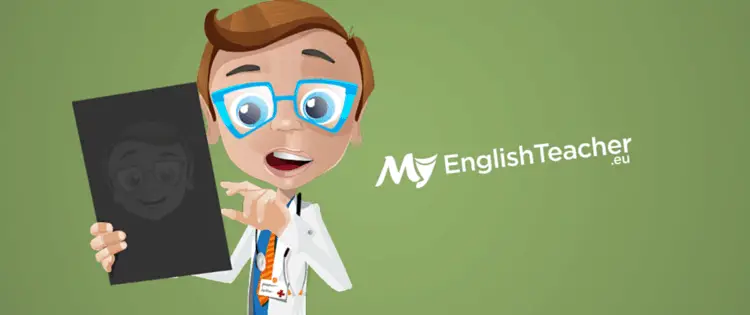
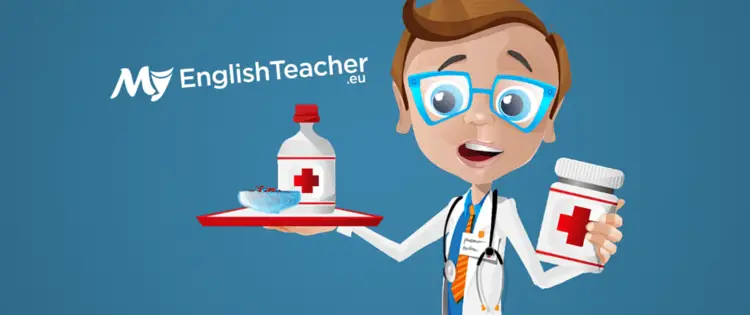








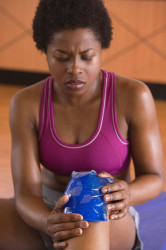


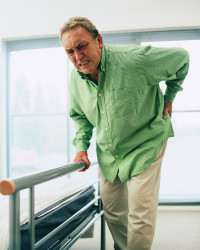
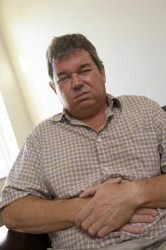
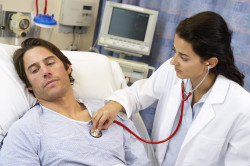







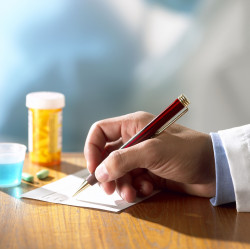
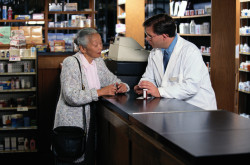




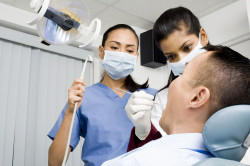



 Health, Illness and Disease Vocabulary
Health, Illness and Disease Vocabulary